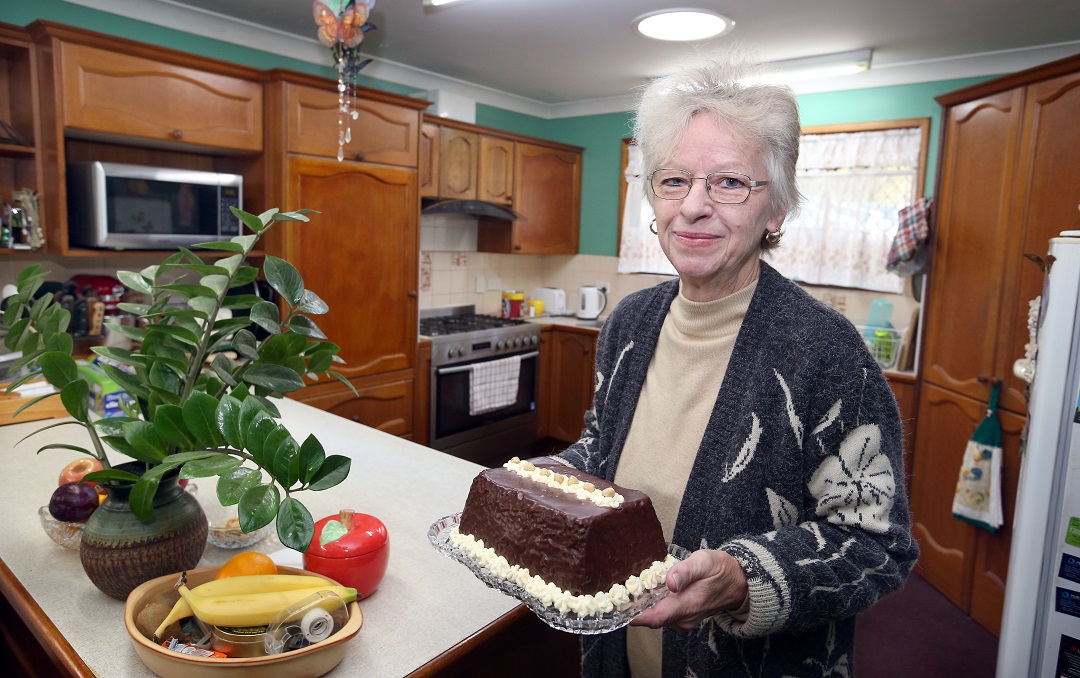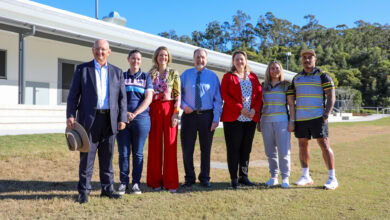If the hills of Austria are alive with the sound of music, then the Australian outback is buzzing with the sounds of flies.
When Thagoona’s Lucia Robertson first arrived in Australia, it was to the coal capital of Queensland, Blackwater.
The contrast between the two countries is stark.
“It was quite a different setting to Austria, but to be honest I was quite happy there,” Lucia said.
Lucia was living and working in Vienna in 1988 when she starting writing letters to an Australian.
She wanted to brush up on her English skills and wrote a letter to a German magazine, saying so.
She received many pen pal requests, but it was Allan’s which stood out.
Over the following three years Lucia came to Australia for visits and Allan visited Austria from Australia.
In 1990 Lucia moved over and was married shortly after.
“Allan was working in the mine at Blackwater,” she said.
“I really appreciated not having to get a job right away as I was still learning to speak English properly.
“I thought I would understand English but I was very wrong.
“Australians talk so fast and it took me a year to just understand them on TV.”
Lucia moved to Ipswich in 1994, first to Rosewood before settling in Thagoona.
“I have never had any trouble,” she said.
“Every single person I talk to are so friendly and that’s the reason why I love Australian people and Ipswich people.
“In the first couple of years I would walk into a shop and I would have to ask people to help me find what I wanted if I didn’t know the words in English.
“I’ve been here for 29 years now and the people here are just good people.”
Allan helped teach Lucia about local customs.
“When I arrived people said to me ‘how are you?’” Lucia said.
“I thought I had to tell them the whole story, so this happened once or twice and the people were looking at me very strangely.
“Allan explained they are not expecting a big story so Allan said all you have to say is ‘I’m fine thanks, and you?’ I said ‘I didn’t know that’.”
Learning about local cuisine was also quite a steep curve for Lucia.
When she moved to Australia she continued to cook what her family had cooked and what she had cooked for family meals in Austria.
“When I first cooked an Austrian staple, Allan was very polite and he ate it,” she said.
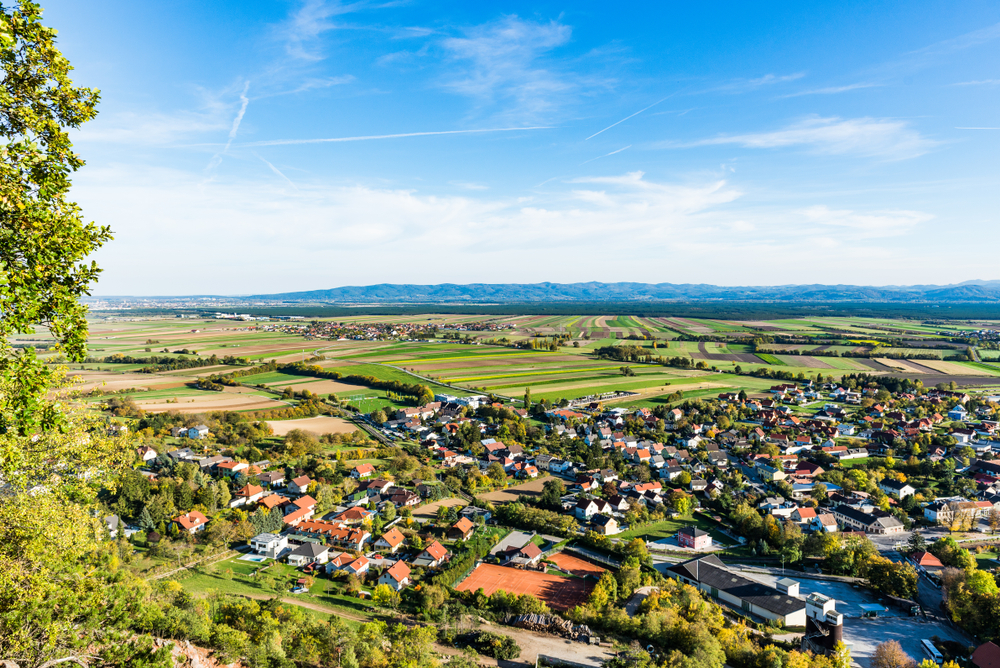
Lucia Robertson talks about her village and life in Austria:
The name of the village where I grew up is Muthmannsdorf.
It was a very small village, nearly every family had pigs, cows, chicken, geese and turkeys.
Most people worked on the fields, where they grew potatoes, corn and wheat.
All children had to go to church on a Sunday, if we didn’t, the priest would ask us, why he didn’t see us in church, he was also our teacher for religion at school. The church was called Saint Peter Am Moos (Saint Peter on moss) built in 1250.
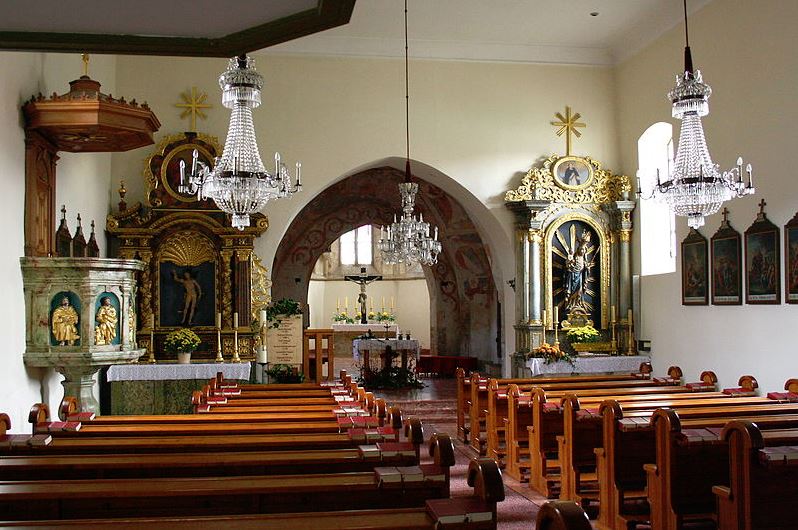
There was just one shop, where you bought things you couldn’t make yourself.
Muthmannsdorf is surrounded with mountains and forests.
There was one pub, where most men went for a beer or a glass of wine after work.
The winters were very cold but everyone had enough wood at home to keep the houses and all animal quarters warm.
Every year was a special dance in the pub, most parents went with their daughters and sons, when they reached a certain age (old enough to get married).
People from neighbour villages came too.
I think life back then was good.
When I was a child, my mother was always at home when my siblings and I came back from school, we didn’t have very much, but we felt always safe, nobody was ever alone.
When parents grew old, the married son or daughter lived in the same house and looked after the old people.
“I can see something on his face, he didn’t look very happy.
“I said ‘do you like it? Does that mean I can cook it again?’ and he said ‘yes, once in a blue moon’.”
The dish in question was crumbed brains.
Lucia said the biggest change to her diet has been getting used to eating more meat.
“Back in Austria I would eat only meat two or three times a week. But I am used to it now,” she said.
Lucia’s favourite thing to do is bake.
“I came from a small village and every Saturday my mother would bake a cake,” she said.
“My family would sit together and relax. We would talk about the week, it was a family catch up.”
The smell of a freshly baked Sunday’s almond chocolate cake wafting through her kitchen, reminds Lucia of this time in her childhood.
“The older I get the more I think about that time when I was growing up,” she said.
“I had a happy childhood.
“We were not well off, my father was a gardener and my mother a housewife.
“But we always had a roof over our head and enough food, there were no problems.”

SUNDAY’S ALMOND AND CHOCOLATE CAKE
Ingredients
Cake:
Soft butter and bread crumbs for the cake tin
100 grams chocolate, melted and cooled
5 eggs, separated
100 grams unsalted butter
140 grams icing sugar
140 grams almonds with skin, grated in food processor
80 grams bread crumbs
Icing and decoration:
About 5 tablespoons hot apricot jam
About 50 grams hazelnuts or almonds without skin
About 100 ml cream
150 grams chocolate, broken into pieces
Whipped cream
Method
Cake:
Preheat oven to 180 degrees celcius
Grease cake tin with butter and breadcrumbs
Beat butter, sugar and chocolate fluffy, add slowly the egg yolks, beat until well combined,
Beat egg whites stiff
Gently fold almonds, breadcrumbs and beaten egg whites into chocolate mixture
Spoon mixture into prepared cake tin and bake about 35 to 40 minutes
Cool cake in the tin for about 5 minutes, remove cake and place it on a plate to cool
Icing and decoration:
Spoon a thin layer of hot apricot jam over the cake,
Heat the broken chocolate pieces and the cream in a pan on a very low heat (do not boil), stir until chocolate is melted,
Pour the lukewarm icing over the cake,
Decorate the cake with whipped cream and dry roasted almonds or hazelnuts
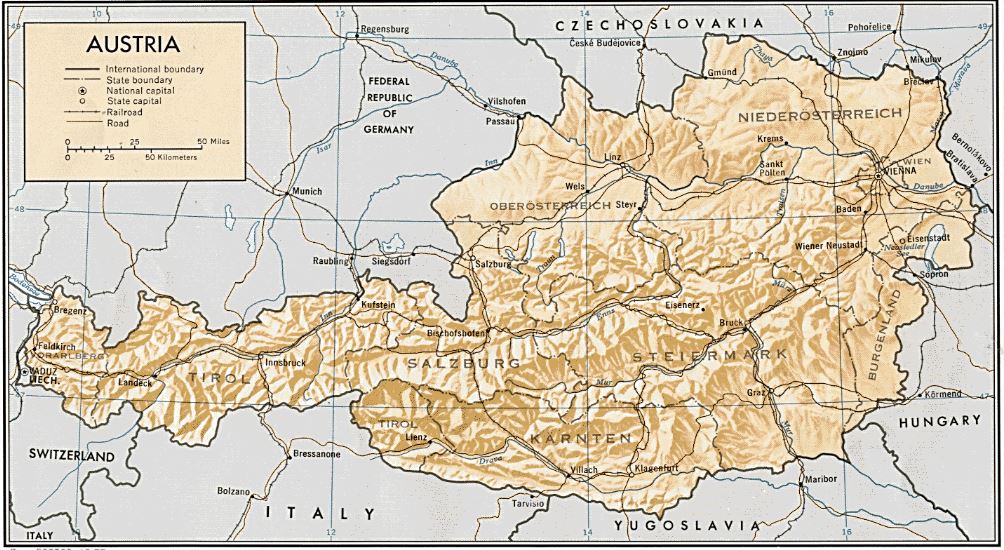
Austria Facts
Austria is a German-speaking country in Central Europe boarded by Germany, Czech Republic, Slovakia, Hungary, Slovenia, Italy, Liechtenstein and Switzerland.
Austria has a population of 8.7 million people and the capital is Vienna.
It is a mountainous country with the Alps in the west and south and hills in the east and north.
Austria is well known for great musicians and composers, such as Wolfgang Amadeus Mozart, Joseph Haydn, Franz Schubert and Johann Strauss, who is the composer of the famous Vienna Waltz.
Arnold Schwarzenegger was born and raised in Austria as was psychiatrist Sigmund Freud, regarded as the founding father of psychoanalysis.
Austrians are famous for their sweet dessert and cakes such as the ‘Sachertorte’, which is a chocolate cake or ‘Strudel’ which is a thin pastry roll filled with apples or cottage cheese.
Started in 803, the Haslauer is the world’s oldest inn and restaurant still in operation. It also holds the title of the oldest company in Europe.
The Austrian flag is one of the oldest in the world.
It is also unique in that, when flown by citizens, it is comprised of three horizontal stripes, alternating red, white, and red.
When the flag is flown by the government, it includes an eagle and a coat of arms in the centre.
Founded in 1752, Austria’s zoo is recognized as the oldest zoo in the world.
Austria can claim 20 Nobel Prize-winning laureates, with five of them in chemistry, three of them in physics, seven in medicine, and one in economics.
The Census in 2011 recorded 17 010 Austria-born people in Australia, a fall of 5.1 per cent from the 2006 Census. The 2011 distribution by state and territory showed New South Wales had the largest number with 5778 followed by Victoria (4563), Queensland (2832) and South Australia (1517).
People have been known to confuse Austria and Australia.
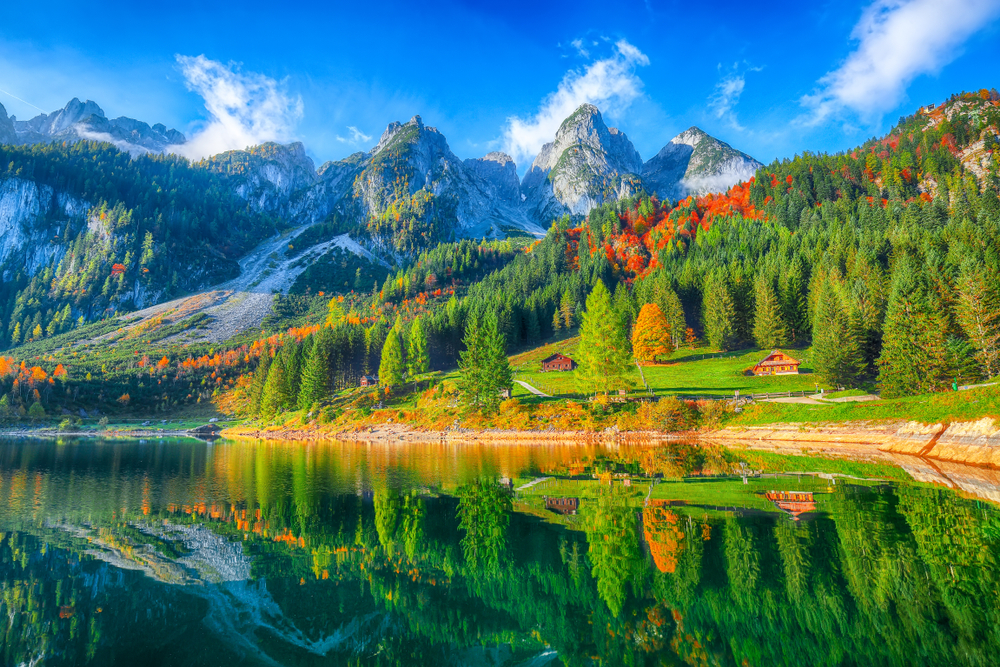
If you have immigrated to the Ipswich area and would like to share your story, please send us an email.

